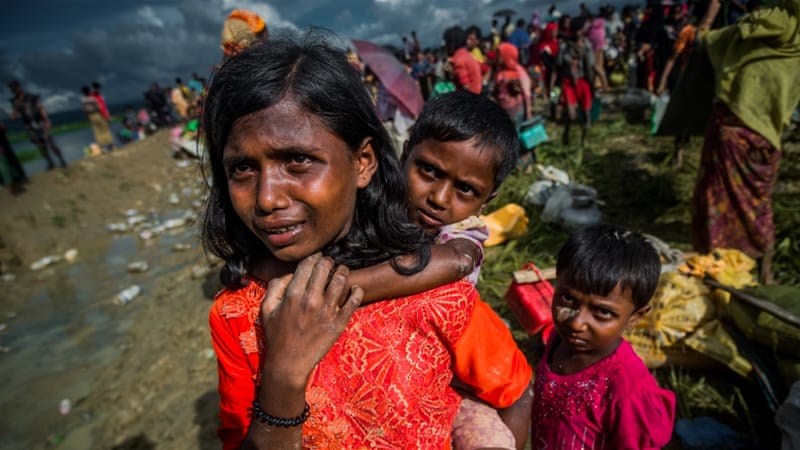US mulls sanctions on Myanmar over Rohingya crisis


The United States is considering sanctions against Myanmar authorities for its “violent, traumatic abuses” of the majority Muslim Rohingya in restive Rakhine state.
Washington may use a human rights law to target leaders or groups involved in the violence in the western state, the US Department of State said in a statement on Monday.
“We express our gravest concern with recent events in Rakhine state and the violent, traumatic abuses Rohingya and other communities have endured,” the statement said.
“It is imperative that any individuals or entities responsible for atrocities, including non-state actors and vigilantes, be held accountable.”
Since August 25, the Myanmar army has waged a brutal military campaign in Rakhine against the Rohingya.
More than 600,000 Rohingya have fled the country, most arriving in Bangladesh by foot or by boat, with aid agencies struggling to cope with the influx.
“We are exploring accountability mechanisms available under US law, including Global Magnitsky targeted sanctions,” Heather Nauert, State Department spokesperson, said.
Under the Global Magnitsky Human Rights Accountability Act, the president can block or revoke the visas of certain foreign individuals and entities or impose property sanctions on them.
The US government last imposed sanctions on Myanmar in 1997 when it was under a military dictatorship. Following a transition towards democracy, the measures were lifted in October 2016 by then President Barack Obama.
Benjamin Zawacki, an independent Southeast Asia analyst, said while the proposed sanctions are far more appropriate, if imposed, they come a month late.
“Any preventative element of these sanctions has long passed its sell-by date,” he told Al Jazeera, speaking from Thailand’s capital, Bangkok.
“The only thing left now is the punitive element, and it remains to be seen whether they will be felt as such by these generals that have been targeted.”
The US also announced that it is withdrawing military assistance to Myanmar officers and units operating in northern Rakhine.
Zawacki suggested that an arms embargo would be effective against the military.
“If there is, in fact, no punitive effect on these generals, they [sanctions] need to be strengthened and widened by way of military force projection,” he said.
Last week, Secretary of State Rex Tillerson said that the US holds Myanmar’s military leadership responsible for its harsh crackdown of the Rohingya.
The UN describes the Rohingya as the world’s most persecuted people.
The minority group has suffered years of discrimination and have been denied citizenship in Myanmar since 1982.
In Monday’s statement, the US urged the safe and voluntary return of those who have fled or been displaced in Rakhine, as well as a “credible path to citizenship”.